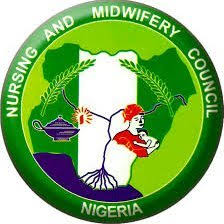The World Health Organisation (WHO) has urged Nigeria to significantly scale up public health spending, warning that the country’s 2025 budgetary allocation of 5.18 per cent falls far below continental commitments and global best practices.
Speaking at the National Health Financing Dialogue in Abuja on Thursday, themed “Reimagining the Future of Health Financing in Nigeria,” WHO Regional Director for Africa, Dr. Mohamed Janabi, said Nigeria must raise its health allocation to at least 20 per cent of total government expenditure to build a resilient system capable of protecting its 223 million citizens.
Nigeria’s 2025 health budget is pegged at N2.48 trillion—just 5.18 per cent of national spending. Of this, N402 billion is earmarked for health infrastructure, while N282.65 billion is allocated to the Basic Health Care Provision Fund (BHCPF).
Janabi stressed that sustainable health financing is the backbone of resilient systems and warned that underfunding perpetuates heavy reliance on out-of-pocket spending by households. He noted that increased public investment would strengthen pooling and prepayment mechanisms, reduce catastrophic health costs, and safeguard vulnerable families.
“With more than 223 million citizens, how Nigeria finances health is vital for the well-being of its people and the future of the continent,” he said. “The budget allocation for health should be raised to at least 20 per cent. Healthier populations are more productive, more resilient to shocks, and better positioned to drive inclusive growth.”
He, however, commended Nigeria for recent reforms, including the passage of the National Health Insurance Authority (NHIA) Act, expansion of state-level insurance schemes, and improved funding through the BHCPF. Janabi also highlighted equity and investment units, as well as parliamentary engagement through the Legislative Network for Universal Health Coverage, as innovative models that could guide other African countries.
Also speaking, Amma Twum-Amoah, Commissioner for Health, Humanitarian Affairs, and Social Development at the African Union Commission, reiterated the call for stronger investment, noting that Africa must prioritise health security with domestic resources.
Twum-Amoah recalled the 2001 Abuja Declaration and the 2013 Abuja+12 Declaration, in which African leaders committed to allocate at least 15 per cent of national budgets to health. She lauded Nigeria’s recent approval of S1.7 billion for the HOPE Projects, designed to strengthen governance, expand primary healthcare, and improve nationwide service delivery.
“Amid today’s financing constraints, Nigeria has charted a bold path by approving 1.7 billion dollars for the HOPE Projects. This reflects vision and courage. Indeed, Nigeria’s leadership is critical, and we look to you not to disappoint Africa,” she said.
Despite the commendations, health experts at the dialogue maintained that without a substantial budgetary increase, Nigeria risks falling short of its universal health coverage targets, leaving millions without access to affordable, quality care.




